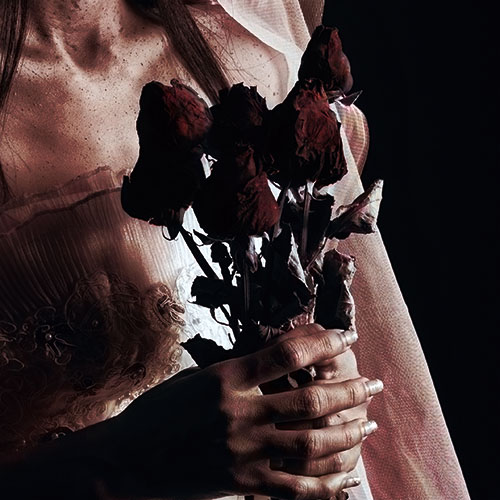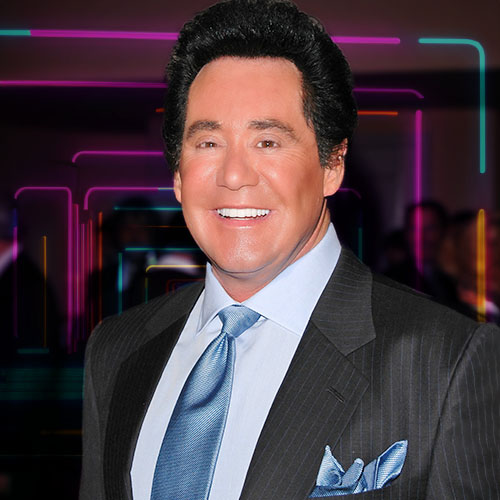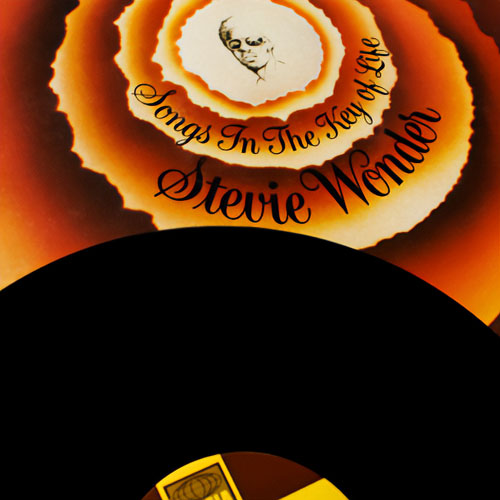Famed for his “Seven Words You Can Never Say on Television,” he filled the void created by the death of Lenny Bruce, exploring the limits of free speech and good taste.
“Brain Droppings”
George Carlin was born on May 12, 1937, in the Bronx. New York. While serving a stint in the military, he began working as a disc jockey; after teaming with fellow radio personality Jack Burns on a Shreveport, Louisiana, morning show, he and Burns in 1956 began performing in clubs as a comedy team. Carlin and Burns made their recorded debut in 1960 with a live show consisting of their rendition of Lenny Bruce’s “Djinni in the Candy Store” routine (Bruce was not only a major influence but an early supporter of the duo) along with a spot-on impersonation of Mort Sahl and a sketch called “Captain Jack and Jolly George” — a spoof of children’s shows, inviting young girls to “send for your Lolita kit.”
The Carlin-Burns team found some success, but eventually broke up; the 1960 album was not released until many years later under the name The Original George Carlin. On his own, Carlin began performing in clubs as a clean-cut, straitlaced performer; his proper solo debut. 1967’s Take-Offs and Put-Ons, introduced America to classic routines like “Wonderful WINO,” about a mindless disc jockey. That year he also was tapped to costar in “Away We Go,” a TV summer-replacement series for “The Jackie Gleason Show.” Yet despite his success, Carlin loathed his suit-and-tie image. As the 1960s youth rebellion grew in numbers, so did Carlin’s interest in the ideals of the counterculture. Also growing was Carlin’s hair.
Now long-haired and bearded. Carlin saw his once lucrative career begin to slip away — but that didn’t seem to faze the “hippie” comic. His no-holds-barred rants on sex, drugs, and politics soon attracted a growing and loyal fan base. Following 1972’s AM and FM (which still displayed some traces of the old routines). Carlin’s 1972 Class Clown and the following year’s Occupation Fool marked his total commitment to fucking the establishment. (Note: Class Clown featured the recorded debut of the “seven dirty words” bit, the subject of a Supreme Court ruling after the F.C.C. nearly stripped Pacifica Radio of its FM license for playing the routine on the air. Carlin himself was arrested after a Milwaukee concert appearance for violating local obscenity laws.)
The controversy only made him a bigger star, and in 1975 he was tapped to host the debut episode of the NBC sketch-comedy showcase “Saturday Night Live.” The same year also saw the release of the LP An Evening With Wally Lando Featuring Bill Slaszo, highlighted by an early performance of what soon evolved into Carlin’s popular “Baseball vs. Football” routine. In 1976 Carlin appeared in the film Car Wash, and in 1977 he issued On the Road.
Yet it seemed as if time was catching up to Carlin, with a new breed of way-out comedians like Steve Martin, Robin Williams, and Andy Kaufman beginning to emerge. As younger, hipper comics flourished, Carlin’s brand of sociopo-litical humor seemed outdated. Plagued by substance-abuse problems, he did not record again until 1981’s A Place for My Stuff, and he gained a reputation for unpredictable, often abusive onstage behavior.
Down but not out, in 1985 a clean and sober Carlin put out Carlin on Campus and in 1986 Playin’ With Your Head. After 1988’s What Am I Doing in New Jersey? he was surprised to find Generation Xers rediscovering his act, thanks to his appearances in the popular Bill and Ted screen comedies; in the early 1990s he courted an even younger audience by assuming the lead role on the PBS children’s series “Shining Time Station.”
Still, Carlin did not neglect his core audience; 1990’s Parental Advisory, Explicit Lyrics, and 1992’s Jammin’ in New York found him as feisty as ever, and in 1994 he starred as an abrasive cabdriver in the short-lived Fox sitcom “The George Carlin Show.” In addition, Carlin, who now has 11 HBO specials to his credit, recently shocked the book business with his best-selling Brain Droppings (Hyperion). As for the immediate future, he continues to perform in comedy clubs across America, and later this year will be seen in the star-studded Kevin Smith film Dogma.
After 35-plus years in comedy, what keeps you going?
This is what I do. I don’t think people need something to keep them going unless they’re doing something they don’t like. To me, work is something you do when you’d much rather be doing something else.
Looking back at your remarkable career, what do you see?
A lot of good comedy, but it’s only been in the last ten years that I’ve learned to do it well. I was on autopilot for the first 25 years. I’m 62 now. Starting at about 50 is when I really began to learn how to do this. It’s not an easy thing to explain. I’m not going to try to explain it; I’m just going to try and explain what it is I’m saying. That is, the process of using your ideas, the way you see the world, the way you look at things, all have to do with your observational filter, the prism that you see things through. It took me a long time to realize how I operated in that way. Now I sort of have a handle on it. Now I can produce my art in a more focused fashion.
I’m amazed that only recently you’ve become so enlightened, since your early comedy is so brilliant.
I’m proud of the early stuff, and a lot of it was well thought out, but an awful lot of it was impulsive and came from an incomplete matrix. I was still a 30-year-old who was wasting a lot of time on drugs and didn’t have time to really take in a lot of information and weigh it up against my own values. That’s what a person’s art comes from, a storehouse, a long-built-up storehouse of impressions that you get from the world. Video, audio impressions, feelings, things you notice and things you hear and experience, get stored up in the mind and become your backdrop. That’s the thing to which all new information is compared. Well, if that backdrop is poor or impoverished or doesn’t have a lot of depth or texture to it, you’re not going to get much contrast between what comes in and what’s already there. But as you get older, and if you’re paying attention, your backdrop gets richer, and therefore the things you’re seeing today get compared to a much richer matrix.
That’s one hell of an answer.
I’m sorry to act so serious on stuff like this, but you know what? I don’t take myself really seriously. I think the world and life is all a big joke, but I do take my work or my art seriously. I care a lot about it.
I understand your formal education ended by ninth grade. Was that by choice or by specific request?
No, I quit. If they had tossed me out, I would’ve gone to another school. They weren’t teaching me what I wanted, and I wasn’t interested in what they had to offer. What they had to offer was a trip through high school and a trip through college so through college so they could turn you into a little consumer and a little producer of goods, so they could stick you into the system like another wheel and get you married so you can turn out some kids who need clothing that you can go to the store and buy stuff with the money that they lend you. Your salary is lent to you; you’re expected to go out and spend it. I didn’t want to be part of that. I didn’t want to be part of the American system. I felt different. I felt I could find my own way by pursuing my comedy. And that’s what I did.
That was a bold stance to take during a very conservative time. What was the immediate reaction of your parents?
Well, my father was gone, and my mother was upset, of course. But I had a big job pushing her out of my life because she attempted to be very controlling and domineering. So besides the normal separation that a young man has to make from his parent or parents, I had extra work to do there because she was so controlling and clinging. A smart parent knows when to let go and how much to let go. A smart parent allows a child to breathe and form his own identity. My mother didn’t understand that, so I had to push her away and push myself away
Talking about your childhood, was there a moment growing up when you realized you were funnier than most?
When I was a little kid I found that I was good at mimicking — mostly my mother’s friends, my mother, and other people in our lives. This was when I was a baby, maybe six, seven, or eight. So what happens is you learn with those experiences that it pleases people. It makes them feel good about you, so you pursue that.
Do you think that need for approval is inbred among entertainers?
Yeah, well, there’s two parts to it. The first part is, get it out. I got things to say; I got things to tell; let me get it out. But I think I would do this even if there were no audience. I mean. I think if I were a caveman, I would be drawing on the side of the cave.
You began your career as a radio disc jockey. Seeing how shock radio has grown popular today, would you say you were ahead of your time?
That’s not really a pertinent thing. I was a good deejay. I used my personality and my wit in an era before Top 40 formats got real tight. There was a little room for clowning, so I did. But, no, I couldn’t have seen what was coming, and I didn’t have any idea. I just wanted to be myself. I don’t think about my radio days in retrospect.
Early in your career you teamed up with newsman Jack Burns. Do you still keep in touch with him?
Yeah. Jack’s a writer and sometime producer of shows. He was the head writer of “Fridays,” which was on ABC for a while. He was the head writer and producer of a lot of TV shows along the way, including Garry Shandling’s first show on HBO. Currently I don’t know what he’s doing, but I do talk to him every now and then.
How has comedy changed over the past three decades?
It’s obvious to anyone who’s been watching that everything changed in the late sixties, early seventies. Rock ’n’ roll changed, comedy, news, novels, movies — everything loosened up because of that little bit of freedom that began then. So that time period affected comedy the same way it affected everything else. It meant you could say more and you could talk about more things. Otherwise, comedy hasn’t changed. You still got to get laughs and go on to the next laugh.
What’s your opinion of Richard Pryor?
He’s a funny man, one of the best; one of the few people who knew how to dig down deep into himself.
Why do you think it is that some of the most brilliant comedians are also so self-destructive?
There are a lot of artists in all different fields of art who have personal demons. There are a lot of people outside the arts that you don’t hear about. Famous people’s deaths and struggles are dramatized and spread wide by the media, so we think there’s more of them. I don’t believe that the percentage is any different. But it is true that a sensitive, artistic soul probably is open to more torture. Think of all the poets and writers who died before their time or committed suicide. Comedians are just another branch of the arts.
Wasn’t there a period in your career when you also became vulnerable to those demons?
People describe taking drugs as self. destructive behavior. I think that’s linguistic overkill. Anything, then, can be described as self-destructive. Living is self-destructive. Taking drugs was part of the era I grew up in. I came from a neighborhood where we smoked pot way before white kids had pot. I was from an Irish neighborhood, so we drank early in life too. Those things were a segment of American life that I was a part of. I don’t associate drugs with destructive behavior. I was never arrested for it. I was never brought to a hospital with an overdose. I never used heavy drugs. I don’t think what I did was self-destructive. Did it get in my way? Yes, probably.
You’re famous for “The Seven Words You Can Never Say on Television.” Do you recall some of the initial reactions to that bit?
The people I was playing to at that time already liked my style of things, so they probably just enjoyed it.
I’d have guessed that bit would have been quite a shock to the conservative ears of that era.
That material came along after I had made my changes in the early seventies. I was already playing to the choir, as they say. I was already talking to the converted.
Your career has expanded from comedy into acting. Has acting come easily for you?
I wouldn’t do it if it were something that was difficult for me. It requires a lot of work, thought, and effort, but it’s enjoyable. It’s just something I want to add to what I do. And it’s fun.
You’ve appeared in a handful of films. Are you comfortable seeing yourself on the silver screen?
Yes. Sometimes I cringe a little, but it’s fun.
You had the opportunity to work alongside Barbra Streisand in The Prince of Tides. What was it like working with Streisand?
Everybody asks that question because they have some notion about her. She’s very good, meticulous, careful, does her homework, knows what she wants, and I think gets good results. So for me, it was just another interesting day’s work. There’s a lot going on, and you’re concentrating on your own part, so you don’t — at least I don’t — sit around and notice a lot of other stuff.
Finally, define “obscene.”
You know William Casey, the C.I.A. chief under Reagan?
Yes.
For his funeral, he asked that people not send flowers but give money to the Contras. That’s obscene.
























